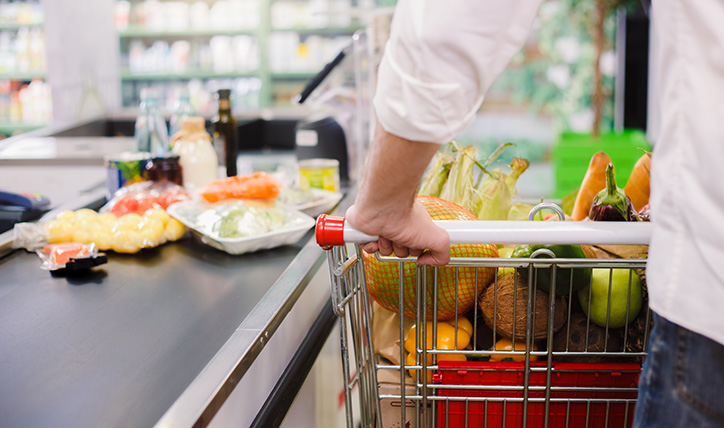Today, grocery stores are still considered one of our most essential businesses. Even though consumers have more choices than ever before with online shopping, the vast majority still prefer a physical grocery store. According to a 2018 ICSC report, nine out of 10 consumers buy most of their groceries in physical stores and plan to continue doing so.
Grocery stores face high risks
With the number of people visiting grocery stores every day, statistically, it’s not a surprise that people get injured, and grocery stores face claims. The most significant risk for grocery stores comes from slip-and-fall suits.
In November of 2019, a grocery store in New York had to pay $11 million in a slip-and-fall suit. One month later, in New Hampshire, a Target store was sued for $120,000 when a woman slipped and fell on a spray cooking oil in a store aisle.
Common causes of grocery store and supermarket injuries
It’s estimated that the average American shopper takes more than 330 trips to the supermarket each year. The best way for grocery stores to mitigate risk is to be aware of the most common causes of injuries and do everything they can to prevent them from occurring. The most common causes of injuries in supermarkets include:
- Slip and Falls — typically in the produce section
- Slip and Falls from leaks and spills
- Floor mats that are out of place
- Defective entrance and exit doors
- Items falling off store shelves
- Obstructions in aisles
- Cracked or uneven pavement outside the store
- Contaminate or spoiled food
The most common types of injuries that result from these issues include:
- Fractures to legs, hips, arms, and wrists
- Cracked pelvis
- Cuts and bruises
- Concussions
- Spinal cord and back injuries
How to prevent grocery store injuries
Knowing what causes supermarket injuries, managers and owners can reduce their exposure by having a proactive preventative safety system in place.
- Monitor the floors: Managers are regularly walking through the store, checking on employees, and inventory. During their rounds, they should also be paying attention to possible slip and fall hazards.
- Add more light: A poorly lit store is a hazard that can lead to trips and falls. Add more light to brighten up the store. This includes changing burnt-out bulbs and upgrading old dimming and flickering bulbs with new ones.
- Take your time: Supermarkets get busy, especially on the weekends. When the environment gets chaotic, it’s easy for employees to rush tasks. Supermarket staff should be trained to be thorough with clean ups no matter how busy the store is at any given time.
- Use cameras: Unfortunately, not all slip and fall claims are honest. Having cameras throughout the store provides evidence to fight bogus claims.
Umbrella insurance for grocery stores
Even if you follow best practices, accidents can still happen, and extensive claims can be made. Adding an extra layer of protection with umbrella liability insurance can help grocery stores weather the fiercest storms.
Sometimes a lawsuit can get outrageously expensive, like the $11 million-lawsuit mentioned at the beginning of this article. Umbrella insurance, also known as excess liability insurance, can provide the extra funds needed in the face of a massive lawsuit.
Excess liability insurance can help grocery stores with:
- Slip and Fall Suits
- Customer Property Damage
- Slander, libel, or other advertising injuries
McGowan Excess & Casualty (MEC) provides customized and innovative coverage to a broad range of commercial customers, including grocery stores and supermarkets. Staffed by industry experts, we offer both Admitted and Non-Admitted products, available in all 50 states. Contact us to learn more.


